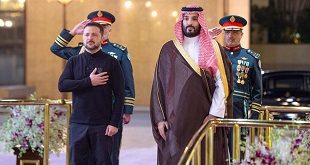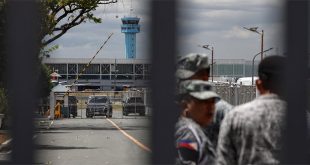
Hangzhou, China | AFP |
This year’s most exclusive and closely-watched diplomatic party –- the G20 summit –- saw presidents and prime ministers from countries representing 85 percent of the global economy gather in the Chinese city of Hangzhou.
How did the first China-hosted G20 go? While analysts correctly foresaw little prospect of big economic breakthroughs, there were some notable moments –- and notable flops.
As heads of state bid farewell to the scenic city, which authorities emptied of residents to ensure a smooth summit, here are some of the memorable takeaways.
Globalisation
Facing populist ire at home, heads of state at the G20 tried to walk a fine line by acknowledging anti-globalisation anger while arguing that ever more liberal trade was the cure for sluggish economies.
In their communique they promised to “reject protectionism” and “promote global trade”.
But they also pledged to ensure that growth “serves the needs of everyone and benefits all countries and all people”. It should generate “more quality jobs” address inequalities and eradicate poverty “so that no one is left behind”, they said.
During the gathering leaders repeatedly admitted that many citizens feel the global trade system has failed them.
US President Obama’s parting words on the G20 meeting –- his last –- were a poignant admission that these are “turbulent times” with “volatile politics” where people don’t believe leadership is capable of “making sure the international economy is working for everybody”.
Syria
Heading into the meeting, diplomats were hopeful that the US and Russia would reach a deal to ease fighting in Syria, but talks failed Monday despite the efforts of Secretary of State John Kerry and Russian Foreign Minister Sergei Lavrov.
The American side accused Russia of backtracking on already agreed issues which Washington refused to revisit, but the talks seemed to have been overtaken by developments on the ground, after government troops encircled rebel-held parts of Aleppo.
Maritime disputes
While China was eager to put on a show of concord in Hangzhou, tensions over the South China Sea have risen sharply, putting the Asian giant at odds with many neighbours over its expansive claims to nearly all of the strategic and resource-rich waterway.
Beijing was eager to avoid the contentious topic, but Obama took the opportunity to chide China Saturday, telling it to abide by international law, drawing a rebuke from Xi Jinping.
Japan has longstanding territorial disputes of its own with China but Xi’s tone with Japanese Prime Minister Shinzo Abe was warmer than previously.
At their first meeting in over a year Xi said the two powers should “put aside disruptions” in their relationship, and Abe described China to reporters as “an important friend of Japan’s since long ago”.
Brexit
New British leader Theresa May came on her first prime ministerial visit to China in hopes of shaping her country’s post-EU access to world markets, but faced a Japanese warning over the fallout from Brexit while the US said London was not its priority.
In the wake of its vote to leave the European Union, Britain must renegotiate its access to world markets — a huge task for the world’s fifth biggest economy.
European Commission chief Jean-Claude Juncker said he did not like the idea of Britain holding trade talks while still part of the EU.
But Britain has already had discussions on the issue with Australia, and May said after the summit that India, Mexico, South Korea and Singapore all said they would “welcome” talks on removing barriers.
US-China diplomacy
Ceremonial niceties matter at the G20, and things got off to a bad start when Barack Obama exited from the rear of Air Force One on folding stairs, a marked contrast to other leaders who descended down a large red-carpeted staircase.
But furious speculation claiming it was a deliberate snub by China, fuelled in part by a tarmac stand-off between travel press and a Chinese agent, seems to have been misplaced, as US sources told AFP the incident came about because Washington refused to use a Chinese staircase in favour of the plane’s built-in steps.
Chinese authorities imposed unusually tight security on the event, with vast swaths of the city closed to normal traffic, but Obama himself downplayed the incident, leading China’s nationalist Global Times newspaper to claim in a Sunday editorial that the hype was due to Western media, “which often makes a fuss over trifling issues”.
 The Independent Uganda: You get the Truth we Pay the Price
The Independent Uganda: You get the Truth we Pay the Price


